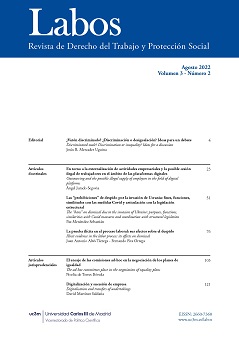Digital work. Analysis of the platform economy in Cuba and Ecuador
Abstract
Objective: the article analyzes from the doctrine of Labor Law, to work 3.0 in the context of the collaborative economy in the web 2.0 platform, based on the recognition in the constitutional text of 2019, the private entrepreneur as an economic actor in the update of the Cuban economic and social model, as its contextualization in the Ecuadorian legal system.
Methodology: from the social sciences based on the bibliographic review carried out, the use of analysis-synthesis, induction-deduction, legal comparison, and the historical analysis allowed us to analyze the 3.0 work in the Cuban nation.
Results: it was shown that the 3.0 work carried out by the digital worker has revolutionized the traditional way of the Right to Work in the labor legal relationship, with the presence of notes of employment, alienation, dependency, autonomy, in this legal relationship labor. In need of updating from the theory and legal regulations from Labor Law in the Cuban and Ecuadorian legal system.
Contributions: the Law career will pay tax on the updating of contents in the field of Labor Law, so that legal operators are updated as legal operators in providing legal assistance to private entrepreneurs.
Downloads
Copyright (c) 2022 LABOS Revista de Derecho del Trabajo y Protección Social

This work is licensed under a Creative Commons Attribution-NonCommercial-NoDerivatives 4.0 International License.
Loa autores ceden a la Revista Labos los derechos de reproducción y distribución, así como cualquier forma de explotación del trabajo.




